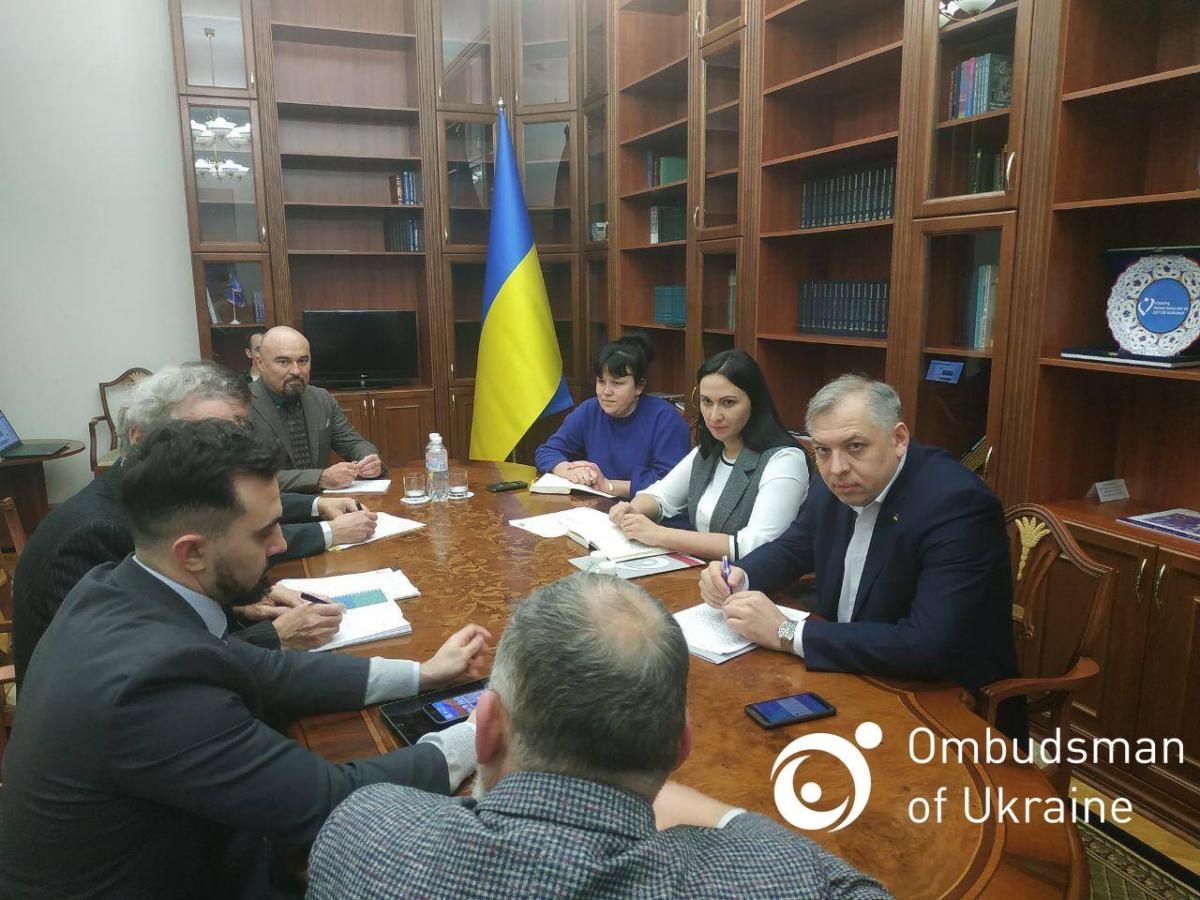
Ombudsperson's envoy Viacheslav Petliovany: In Russian prisons, Ukrainians are held in cages, put on their knees, fed psychotropic drugs
Ukraine Ombudpserson's representative for human rights in the security and defense system and procedural rights, Viacheslav Petliovany, sat down with UNIAN to tell about the conditions in which imprisoned Ukrainians are held around the world, what detainees complain about in Russia, Europe, and the U.S., and why prisons in occupied Donbas and Crimea are worse than those in Bangladesh, Vietnam or Thailand.
Being thrown behind bars is a really stressful experience, even more so – if it happens in another country, as well as amid the pandemic. How many Ukrainians have been locked up abroad over the past 12-18 months?
In 2020, addressing the appeals filed with the Parliament's Commissioner for Human Rights, we checked the observance of procedural rights of 138 Ukrainian citizens held at detention facilities in 26 countries.
Since the onset of the COVID-19 pandemic, more than 40 Ukrainian citizens were imprisoned abroad – in Russia, Bosnia and Herzegovina, Greece, Spain, Poland, Serbia, Slovenia, Georgia, Cambodia, Turkey, and the United Arab Emirates.
From what countries do you most often receive held persons' appeals?
There came 12 appeals each from Poland, Greece and China, 11 from Italy, 10 from Georgia, eight from Thailand, six each from Portugal and Bangladesh, and 32 from the Russian Federation (but those were not from political prisoners).
What rights violations are most common?
During our inspections, we documented violations of the rights to a fair trial, legal protection, proper treatment, health care, and consular assistance. Due to Ombudsperson Liudmyla Denysova's appeals to her counterparts, law enforcement agencies, and diplomatic missions, the rights of our citizens have been restored. We promptly take steps to restore our citizen's rights and ensure the appropriate conditions in custody.
How often do groups of our tourists get detained? In April, twelve girls from Ukraine were apprehended for several days in the UAE – was this a "record"?
Undoubtedly, the arrest of 12 Ukrainian nationals in the UAE set a record high in terms of the number of Ukrainians detained overseas in 2021. From open sources, we are aware that the Ukrainian women's personal belongings, money, passports, telephones, etc. were seized. They also complained that the conditions in custody were unsatisfactory and that they were not provided with personal hygiene items. However, the Ombudsperson received no complaints about human rights violations directly from them or their representatives.
The Ukrainian consul met with them, the conditions in custody were checked, and consular legal assistance was provided. The detainees were released from custody and then they eventually returned to Ukraine.
In general, cases, where more than one Ukrainian is detained, are quite often. For example, in 2020, five citizens were detained in Georgia, including two yachtsmen from Odesa. In 2021, two Ukrainian citizens were detained in the United Arab Emirates (on suspicion of car theft).
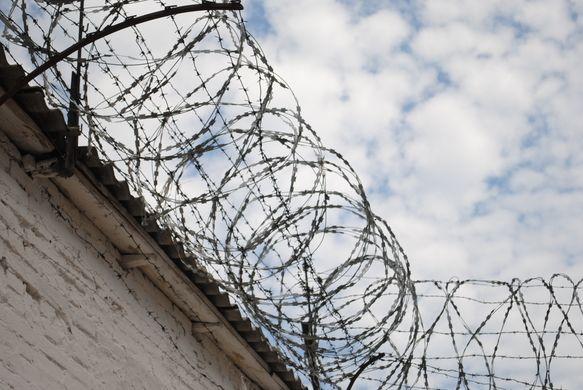
Russia remains an undisputed leader in blatant human rights abuses. What violations does the Ombudsman's Office record most often?
The aggressor state never ceases violating international law. Russia continues to deprive of any rights the unlawfully detained Ukrainians, in particular for their pro-Ukraine political stance. The main violations of procedural rights are as follows:
Illegal holding of Crimean Tatars in pre-trial detention centers and penitentiaries in the temporarily occupied Crimea and in Russia in inhumane conditions, without medical care, and without PPE despite the COVID-19 pandemic, which poses a serious threat to their lives and health;
Illegal transfer of Crimean Tatars to Russia, also in inhumane conditions, contrary to the provisions of the Fourth Geneva Convention (defendants shall be held in prisons in the occupied country and, if convicted, serve their sentences there), tougher sentences, including longer prison terms.
According to available data, as of May 1, 2021, Russia is politically persecuting 133 citizens of Ukraine (including 94 Crimean Tatars). Of these, 114 persons are being unlawfully held in detention centers in Russia and the temporarily occupied Crimea. Nineteen citizens living in the temporarily occupied Crimea are currently under "administrative supervision" at their place of residence, meaning they are restricted in their movement.
We monitor each such case. We're constantly with these people's families (78 political prisoners have 209 minor children), lawyers, and our consular staff. We immediately brief international rights organizations on every fact of illegal detention, conviction, and rights violations.
Alexei Navalny has now become a sort of a symbol of penitentiary arbitrariness in Russia. But how often do Ukrainian political prisoners face the same or even graver problems?
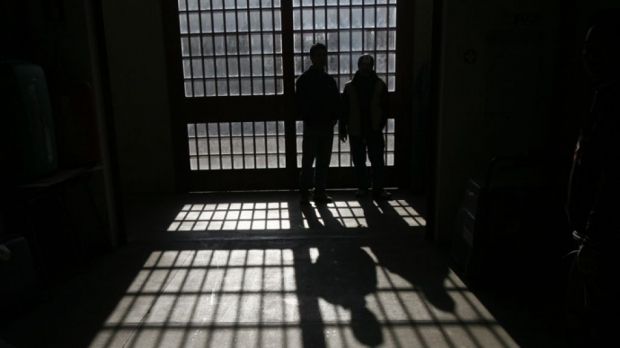
Here are just a few examples. Dzhemil Gaffarov, a Ukrainian national, is a disabled person who is currently being unlawfully held in Rostov-on-Don's SIZO-2 pre-trial detention center. For more than six months, the man has received no qualified medical assistance. Moreover, his chronic diseases are on the list established by the Russian federal law, meaning Gaffarov shall not be held in custody at a pre-trial detention center!
Ukrainian political prisoner Oleh Prykhodko's health has critically deteriorated as a result of failure to ensure his right to adequate medical care. He has chronic diseases of the gastrointestinal tract, genitourinary system, as well as a deep persistent bilateral hearing and vision impairment. He is not receiving adequate medical care, which puts his health life in jeopardy…
Ukrainian political prisoners Volodymyr Dudka, Halyna Dovhopola, Oleksiy Bessarabov, Valentyn Vyhivsky and Teimur Abdullaiev also suffer from significant health issues.
How often do Ukrainians detained abroad speak up about the actions by security officials, pre-trial detention center and penitentiary staff, which can be regarded as torture?
I will also offer a few examples on this issue. For example, former political prisoner Oleksandr Shumkov said Russian security forces would systematically beat and torture him with electric shock, apply physical force and psychological violence, including threatening to kill him. Another former political prisoner, Mykola Karpiuk, said Ukrainian political prisoners in Russia were being thrown in cages, put on their knees, and deprived of sleep for significant periods of time. FSB operatives even use psychotropic drugs on them…
Recently, journalist Vladyslav Yesipenko, who was illegally detained in the temporarily occupied Crimea, stated that on March 10, 2021, "unidentified" masked men forced him into a car without license plates and unlawfully held him in custody for two days in a basement in Sevastopol's Balaklava district, which is not an official detention site. According to our fellow citizen, they put a bag over his head and blocked access to air, connected wires to various body parts, severely beat him, and threatened to kill him by hanging him in a cell – all in order to coerce him to deliver a guilty plea. As it turned out, those "unidentified" men were FSB operatives.
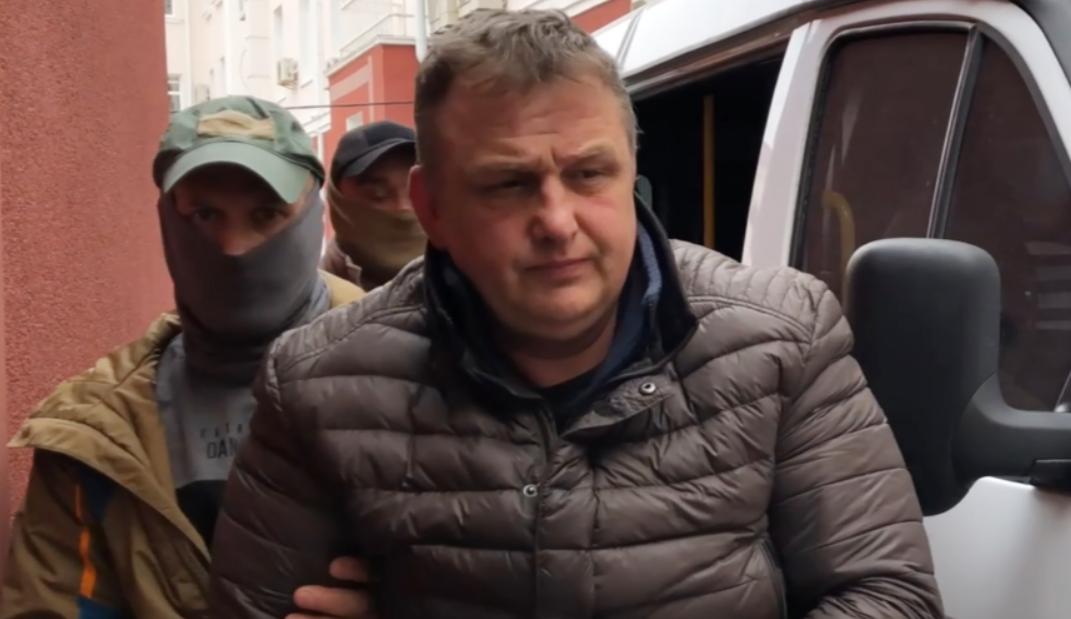
The Ukrainian Ombudsperson sent relevant letters to Russian Commissioner for Human Rights Tatiana Moskalkova, the Russian prosecutor general, the Investigative Committee official, Chairman of the UN Committee against Torture Jens Modvig, UN High Commissioner for Human Rights Dunja Mijatovic Bachelet and OSCE Chairman-in-Office, Swedish Foreign Minister Ann Linde. Denysova asked to investigate the facts of torture, bring the perpetrators to justice, restore and protect Vladyslav Yesipenko's rights.
The Commissioner's 2020 Report contains an example of subtle humiliation of held Crimean Tatars. They were offered food rations they could not consume over religious restrictions. Do you think this was done on purpose?
The practice of providing Ukrainian political prisoners worshiping Islam, including Crimean Tatars, with mixed meats food rations continues. This is most likely aimed to exert psychological pressure on political prisoners. Unfortunately, none of our appeals to the Russian ombudsperson have seen any response.
From what other countries did you receive complaints about poor quality food or issues with drinking water?
Ukrainians held in Greek penitentiaries, for example, complain that food deliveries have been restricted at Malandrino Prison. Besides, whatever food they were getting was of improper quality. Also, because of the drinking water shortage in that prison, they had to buy it at their own expense.
Crowded cells, unsanitary conditions, lack of bunks, poor food quality, and dirty, undrinkable water – these are the problems in prisons of Bangladesh, Vietnam, and Thailand. One of the appeals to the Commissioner said in one of these countries 12 people were held in the same cell, where they had to sleep on the floor. But the biggest problem here is access to drinking water and water used for hygienic purposes.
By the way, overcrowded cells are a feature of African prisons. Due to the large number of prisoners, there are not enough cells to hold them, so more than 20 persons may be held in one cell. Problems with drinking water and food are also familiar to everyone there. There is also a shortage of medical supplies for sick detainees, not to mention face masks and gloves for prisoners needed amid the COVID-19 epidemic. In Africa, the problem of pirates capturing and holding Ukrainian sailors for ransom remains relevant. Several such cases unfolded in 2020.
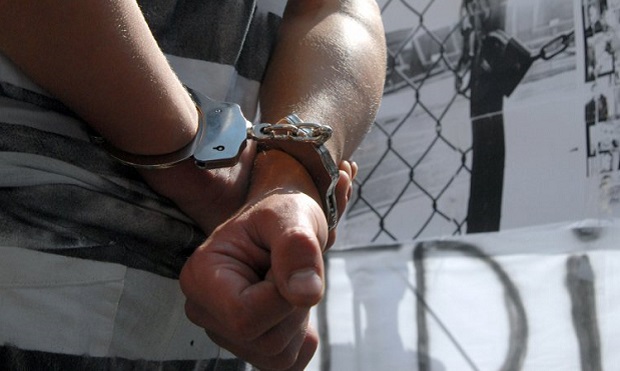
The Commissioner also received many appeals from the Middle East. For example, one came from the relatives of a Ukrainian female detained in Iraq. It concerned the administration's failure to provide her with medications, medical care, and proper nutrition. A similar appeal came from the relatives of a Ukrainian who is being held in a correctional facility in Turkey.
From the appeals of the families of sailors detained in Libya, we know that our citizens for some time had to sleep on the floor. Many detained sailors had health issues after they went on hunger strike demanding that they be released due to the COVID-19 pandemic. According to their families, they had issues with getting in touch with them, while no medical care was provided to the detainees…
And what do those held across Europe most often complain about? How similar are their detention centers to ours?
Polish prisons, compared to Ukrainian ones, have more modern premises, with all the necessary equipment for prison life, so we very rarely get complaints about the conditions in custody.
I have already mentioned Greece, where some prisons holding more than 55 Ukrainian citizens sentenced to 25 years behind bars have unsanitary conditions. In order to overcome the spread of coronavirus, the delivery of water, food, and basic necessities is limited to detention facilities. The premises where Ukrainian citizens are kept don't get sanitized, while inmates are deprived of the opportunity to sanitize their hands and clothes. In addition, they are not provided with the medications needed to boost immunity.
A similar situation was recorded in the Italian prison in Laureana, Calabria. The Ombudsman's Office received a complaint that Ukrainian prisoners were not provided with face masks, gloves, and medications. As a result, they bought medications on their own, while having to wait for deliveries for a week…
And what are the conditions in which Ukrainians are held in South America, the U.S., and Canada? How many Ukrainian citizens are held behind bars?
There are no general statistics. In August 2020 though, a Ukrainian woman detained in the United States complained to the Verkhovna Rada Commissioner for Human Rights. The complaint concerned a violation of her rights to medical care on decent terms. According to the Ukrainian, more than 20 cases of COVID-19 were registered among held persons in her penitentiary.
According to your observations, to what extent can the lack of language skills and poor quality translations affect the fate of detained Ukrainians?
The Convention for the Protection of Human Rights and Fundamental Freedoms states that everyone charged with a criminal offence has the right "to have the free assistance of an interpreter if he cannot understand or speak the language used in court."
However, there are cases where the right of accused Ukrainians to free assistance of an interpreter is violated. For example, in February 2021 we received a complaint from a Ukrainian national detained in Cambodia. Also in Russia, in October 2020, the Third Court of Appeal in Sochi refused to provide Izzet Abdulayev with a Crimean Tatar interpreter, arguing that he had been born in the Soviet Union and educated there. These are direct violations of procedural rights of Ukrainian citizens.
Do you get complaints from detained persons over being deprived of any contacts with the outside world?
We do. Most of these complaints come from the temporarily occupied territories of Donetsk and Luhansk regions. In particular, some relatives of detained Ukrainians haven't been able to see or speak with them for more than five years.
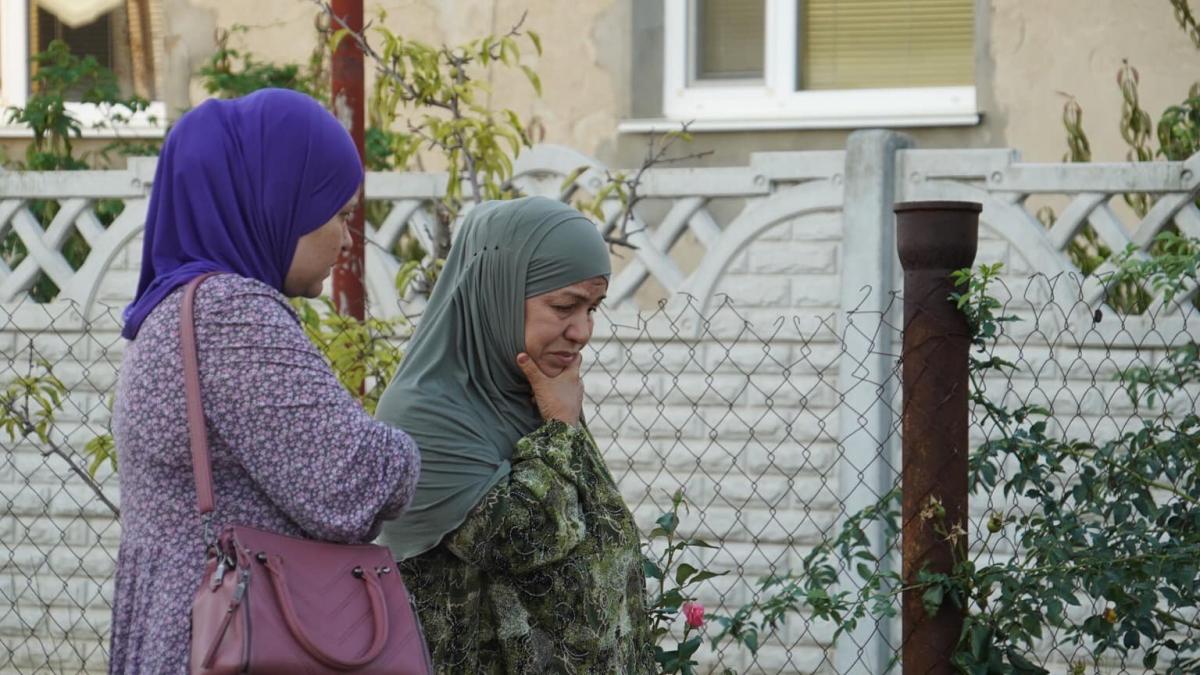
There are also systematic complaints of such violations coming from Crimean Tatars, most of whom are being illegally held in Russia. Due to the fact that Russian citizenship has been forcefully imposed on them, Ukrainian consuls are often barred from visiting them. Many Crimean Tatars are illegally held in various remote areas across Russia, so it is difficult for their relatives to visit, including due to the high cost of such trips. They are allowed to call their relatives no more than six times a year and talk to them for no longer than 15 minutes (according to Article 92 of the Criminal Executive Code of the Russian Federation). Moreover, some of the detained Ukrainians don't even have access books, newspapers and other opportunities to learn about world news.
Are there any places on Earth that are worse than "torture chambers" in the occupied Donbas prisons?
If we even take conditions our citizens face in detention facilities in some Asian countries – unsatisfactory and sometimes inhumane – the situation is still the worst in the temporarily occupied territories of Donetsk and Luhansk regions.
There are a large number of appeals coming from inmates imprisoned before 2014, that's before the onset of the armed aggression. They request that they be transferred to the territory controlled by Ukraine to further serve their sentence.
Relatives of our prisoners of war and civilian hostages, as well as persons already released from captivity tell of inhumane conditions in detention centers across "DPR" and "LPR". People are tortured there, subjected to psychological pressure, deprived of the opportunity to treat their diseases, denied visits and phone calls with relatives. The most notorious place is the so-called "Izoliatsiya" prison, where people have been humiliated for years, amid total impunity for their torturers…
All known facts of torture, abuse, and other rights violations of the unlawfully detained Ukrainians are the subject of relevant appeals to the international community and rights institutions. Unfortunately, the situation remains unresolved regarding the monitoring of rights and conditions in custody in the temporarily occupied areas of Donetsk and Luhansk regions. Russian proxies don't grant access to these territories to the Ukrainian ombudsperson or representatives of international monitoring missions.
What is the dynamic of appeals you're seeing compared to previous years?
Over the past two years, the number of Ukrainian citizens held in penitentiaries in Greece, Italy, Portugal, Poland, Bangladesh, and Thailand who have complained to the Commissioner has hardly decreased. Today it is 92 persons. The ombudsperson monitors how rights of these citizens are being observed and, in case of any violations, immediately takes all possible measures to restore such rights. For example, thanks to such cooperation with the Chief Ombudsman of Thailand and the staff of the Ukrainian Embassy in Thailand, in 2020, eighteen of our fellow citizens were pardoned. All of them have already returned home.
Vlad Abramov

